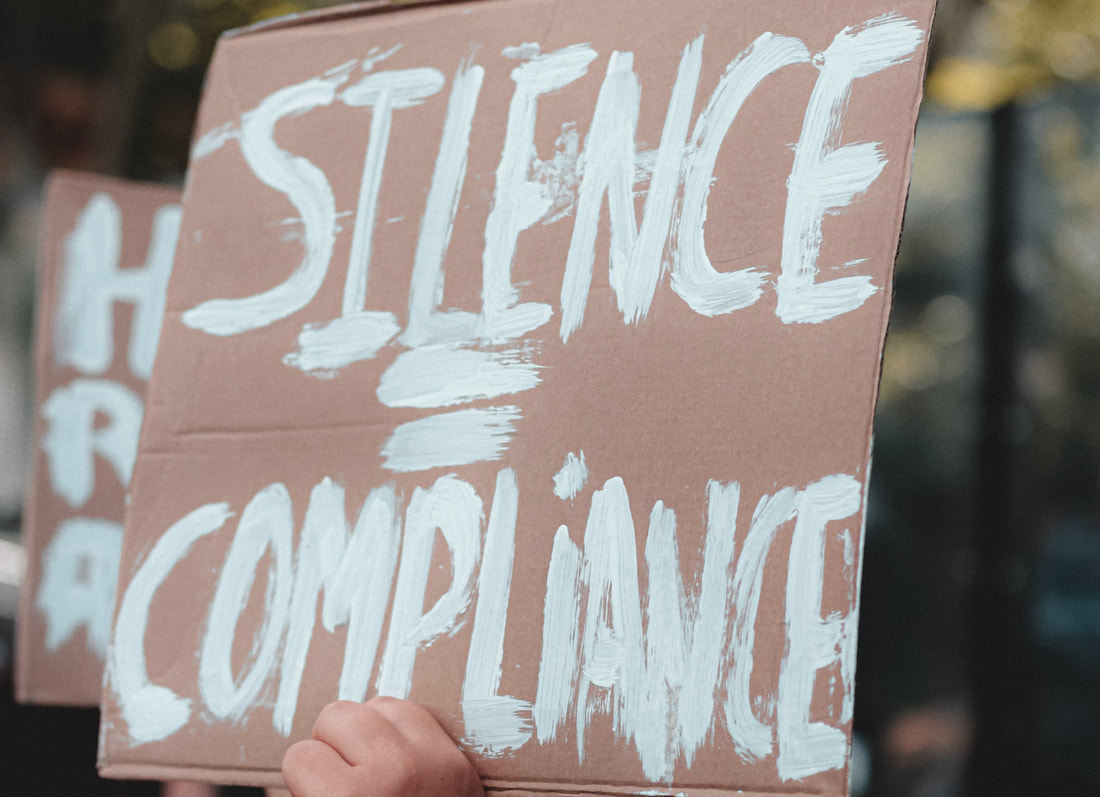|
‘Two roads diverged in a wood, and I — I took the one less travelled by.’ (Robert Frost) It was in a dark, cigarette smoke-filled pub one night. The trade union reps sat behind a long wooden table, cluttered with half-full beer glasses. We about-to-graduate apprentices sat opposite, waiting to be called forward. (It was in the days of closed shop when qualified trades people could only be employed if they held union membership). At the time, I supported the value of trade unions in principle, yet felt dismayed and disillusioned by the corruption that this source of power had created. I noticed my colleagues often lived in fear of the union rather than represented by it. If you said or did something that challenged or upset union leaders, you risked losing your union card and therefore your job. One by one, my fellow apprentices stepped up to the table. ‘Raise your right hand. Do you swear to abide by the rules of the trade union?’ ‘Yes.’ ‘OK, go and sit down.' My turn came. ‘Do you swear…?’ ‘No’, I replied. ‘I have no idea what the rules of the trade union are.’ The panel looked bemused. ‘You really want to read the whole rule book before you agree?’ ‘Yes’, I replied. The shop steward thrust a copy into my hands then ejected me forcefully from the meeting. ‘Wait outside until we call you back in.’ I skimmed through the book then, on return, insisted I was exempted from default political party contributions, as was my right according to the rules. They looked intensely frustrated but had to consent. I don’t think such encounters changed the trade union, but they did change me. Some months later, I was sent on a 2-week residential apprentices' programme that aimed to stimulate personal leadership qualities. I challenged the senior managers there with whom, providentially, I had opportunity to speak. ‘Why invest in this programme when the prevailing management behaviour in the workplace is so autocratic? We need to change culture, not just individuals’. They looked deeply uncomfortable yet I held my ground. (They had, after all, encouraged personal leadership). At the formal dinner of the final evening, they invited me to sit at the top table alongside the most senior leader for that region. I was learning to navigate my way through power structures and systems and to exercise personal and political agency. [See also: Pivotal points]
10 Comments
'Listen with curiosity. Speak with honesty. Act with integrity.' (Roy T. Bennett) Action Learning facilitators sometimes feel concerned about what might happen in a set (a small group of peer-coaches) and how they might handle it if it does. When we discuss these kind of troubleshooting scenarios in training, I often notice that facilitators feel a sense of personal responsibility to manage anything and everything that might happen. Apart from placing a lot of pressure on the facilitator which could, in the moment, inhibit psychologically their ability to handle any challenges that may arise anyway, it also misses the self-resourcing potential of a group. The key often lays in shifting the facilitator’s stance from control to curiosity. This doesn’t mean abandoning the governance role of the facilitator altogether, for example to ensure that agreed ground rules and process are followed appropriately. It does, however, mean approaching any challenges that emerge in an invitational tone. For instance, if the group is very quiet, or conversely very talkative, and this leaves the presenter perhaps with little stimulus or space for reflection, the facilitator can offer this as a judgement-free observation, like holding up a mirror to the set. ‘I’m noticing the group seems very quiet. I’m wondering what that might mean?’ Or, ‘I’m wondering what we might need?’ It could be that participants don’t know and trust each other well enough yet. It could be that they don’t believe they have understood the presenter’s challenge and feel nervous to admit it. It could be that they feel insecure about posing a ‘wrong’ question in front of peers. It could be they have an introverted preference and simply need time to reflect before framing a question. A spirit of curiosity can open things up, release stuck-ness and move things forward. 'The optimism of the action is better than the pessimism of the thought.' (Greenpeace) Resilience is a common buzz word today, partly in response to the complex mental health challenges that individuals and communities face in a brittle, anxious, non-linear and incomprehensible (BANI) world. Who would have imagined 3 years ago, for instance, that Covid19 would strike or that Russia would invade Ukraine, with all the ramifications this has precipitated in our personal and collective lives? It can feel like too much time spent on the back foot, reacting to pressures that may appear from anywhere, without warning, from left field – rather than creating the positive future we hope for. A psychological, social and political risk is that people and societies develop a ‘Whatever’ attitude, an apathetic ‘What’s the point?’ mentality. After all, what is the point of investing our time, effort and other resources into something that could all get blown away again in a brief moment? A good friend worked in Liberia with a community that was trying to recover from the effects of a bloody civil war. They started to build schools, hospitals and other infrastructure and, just as things were beginning to look hopeful, a violent, armed militia swept through the area and burned everything to the ground. This can feel like an apocalyptic game of snakes and ladders. Take one step forward and, all of a sudden, back to square one again. A close friend in the Philippines befriended people in a very poor makeshift community, surviving at the side of a busy road in boxes and under tarpaulins. She worked hard to improve the quality of their lives, to ensure that they felt and experienced authentic love, care and support, and it started to have a dramatic human impact. Faces brightened and hopes were lifted. Then, out of nowhere, government trucks appeared and bulldozed that whole place to the ground. It could be tempting to give up. One coping mechanism is to focus on living just one moment, one day, at a time because, after all, 'Who can know what tomorrow will bring?' This may engender an element of peaceful acceptance, akin to that through mindfulness. It can also morph into a form of passive, deterministic fatalism: ‘We can’t change anything, so why try?’ Martin Luther King's response stands in stark contrast who, in the face of setbacks, advocated, ‘We’ve got to give ourselves to this struggle until the end. Nothing would more tragic than to stop at this point. We’ve got to see it through.’ Psychologically, both approaches could be regarded as survival strategies, as personal and social defences against anxiety. In a way, they are adaptive responses: ways of thinking, being and behaving that seek to create a greater sense of agency and control in the face of painful powerlessness. In the former case, a level of control is gained, paradoxically, through choosing to relinquish control. It's a letting-go rather than a clinging-on. In the latter, a fight-response (albeit a faith-fuelled, non-violent fight in the case of MLK), control is sought by changing the conditions that deprive of control. Each constitutes it's own way of responding to an external reality – and it’s out there as well as in here that the real and tangible challenges of resilience and transformation persist. The social, political and economic needs of the poorest, most vulnerable and oppressed people in the world don’t exist or disappear, depending simply on how we or they may perceive or feel about them. MLK’s call to action was radical: ‘We need to develop a kind of dangerous unselfishness. It’s no longer a question of what will happen to us if we get involved. It’s what will happen to them (and us) if we don’t?’ [See also: Resilient; When disaster strikes; Clash of realities] ‘You can’t always control who walks into your life but you can control which window you throw them out of!’ (Anon) It can be one of the worst feelings. To lose control. To be out of control. It’s also one of the main root causes of anxiety, depression and stress. To have control suggests to have choice, to have power to decide, to have agency, to be free. To lose those things, to have them taken away from us or to discover they lay out of reach for us can feel scary, disorientating and debilitating. It’s a critical consideration in change leadership, coaching, OD and training: how to handle issues of control. I met with a change team recently that discussed how best to support people through transition. They had a very positive intention and created some great ideas. The critical and missing ingredient was to invite and involve the actual people they aimed to support in choosing what they would find most useful. The simple felt-experience of choosing can create a psychological sense of control in the midst of bewildering and anxiety-provoking change – and that can make all the difference. I worked with a leadership team that felt overwhelmed by challenges they were facing. Their environment was so turbulent, complex and unpredictable that they struggled to understand it and to know what to do in response. Their felt sense of out-of-control-ness evoked anxiety and that made it difficult to think straight. Their solution lay not in exercising greater control but in letting go of their psychological need for control. They learned adaptive-responsive, emergent leadership instead. How do you work with issues of control? |
Nick WrightI'm a psychological coach, trainer and OD consultant. Curious to discover how can I help you? Get in touch! Like what you read? Simply enter your email address below to receive regular blog updates!
|







 RSS Feed
RSS Feed